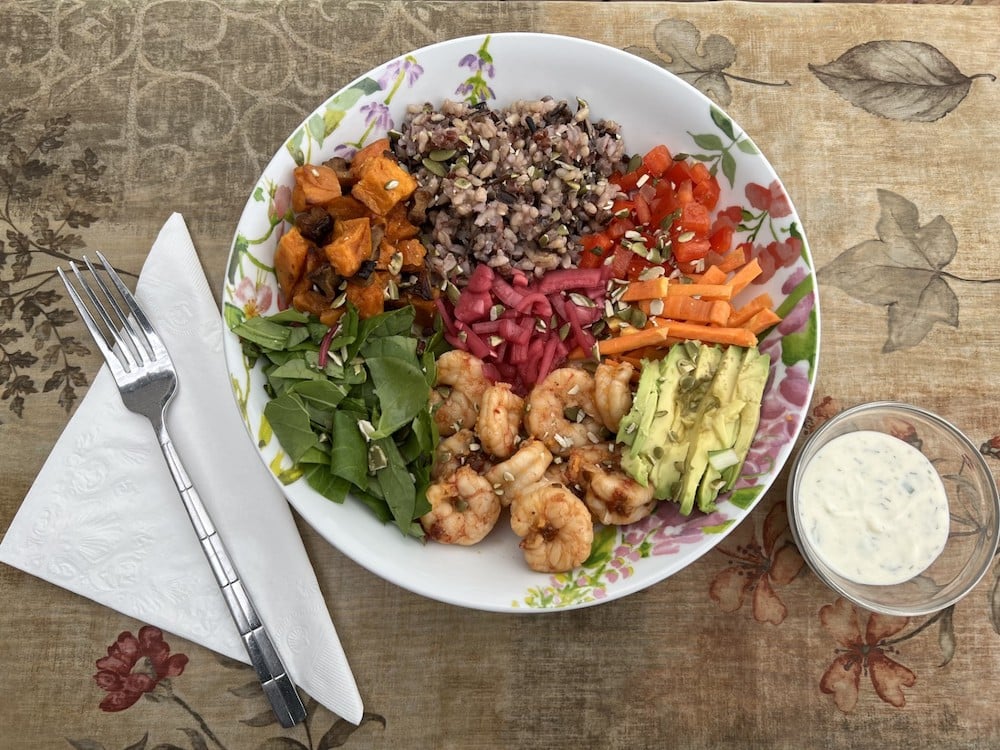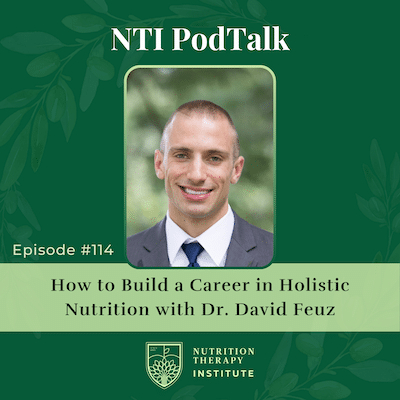
Share this post!
In the past couple of months, exciting new research has confirmed what many have been practicing for years: nutrition therapy can provide considerable help to diminish symptoms and induce healing in people suffering from Crohn’s disease.
Crohn’s disease is estimated to affect over a half a million people in the United States alone, with numbers on the rise. Crohn’s is a form of inflammatory bowel disease that is autoimmune in nature. The body mistakenly attacks the lining of the digestive tract, creating inflammation anywhere along the digestive tract, but most commonly in the ileum (the final section of the small intestine) and the beginning of the colon. Crohn’s patients often have abdominal pain and diarrhea and may experience skin problems such as sores and rashes, malnutrition, anemia, and SIBO, as well as potentially serious complications.
For years, doctors have struggled to identify the cause of Crohn’s disease and have treated patients with steroids, surgery, and immunosuppressive drugs that come with a slew of side effects and a huge expense, but nutrition therapy has been used by thousands of patients to lessen symptoms and improve quality of life. Now, three new studies corroborate this anecdotal evidence.
Specific carbohydrate diet shows promise in treating Crohn’s disease
How’s this for ‘food as medicine’? Dr. David Suskind, a gastroenterologist at Seattle Children’s, recently published a study in the Journal of Clinical Gastroenterology showing that diet alone can bring pediatric Crohn’s patients into remission. In his study, he used the specific carbohydrate diet (SCD), which is one of several therapeutic diets taught at NTI, as the sole intervention for 12 weeks in kids ages 10-17. SCD removes grains, most sugars, dairy (except for homemade yogurt), and processed foods, and emphasizes vegetables, meats, fermented foods, fruits, nuts, and healthy fats. Elaine Gotschall, the biochemist who popularized SCD in her book Breaking the Vicious Cycle: Intestinal Health Through Diet, theorized that certain undigested carbohydrates promote the activity of bacteria that produce gut-damaging toxins. By removing these specific carbohydrates from the diet, the microbiome rebalances, and the gut is allowed to heal. In Dr. Suskind’s study, eight out of the 10 patients who finished the study showed significant reduction of their C-reactive protein (an inflammatory marker) and dysbiosis and achieved remission from the nutrition therapy alone. Although this study had a small sample size, it’s incredible to have scientific data to back up a dietary intervention that has anecdotally helped thousands of people. Kudos to Seattle Children’s for integrating nutritional approaches into their treatment plans!
Another study published in the Journal of the Academy of Nutrition and Dietetics in 2015 looked at how dietary invention can help patients suffering from inflammatory bowel disease. This study surveyed 50 patients who followed the SCD and were in remission. These adult patients reported an improvement of symptoms within 30 days of starting the diet, with 33 participants stating that their symptoms resolved completely after 10 months of following the SCD. Participants noted that the diet can be difficult to follow, and food preparation is time-consuming. This is where working with a qualified nutrition therapy practitioner and/or natural food chef can be invaluable. Having help with creating meal plans, stocking the kitchen, learning new recipes, and preparing meals can be the difference between success and failure when implementing a new diet such as SCD.
The role of probiotics in Crohn’s disease
Another area of study in the treatment of Crohn’s disease involves a much-revered supplement to all nutrition therapists: probiotics. Holistic health practitioners have long made the connection that gut dysbiosis and leaky gut are often culprits in autoimmune disease, and hope is on the way for Crohn’s patients thanks to a new study published this month in Digestive and Liver Disease. Researchers found that patients with Crohn’s disease tend to have much higher levels of the fungus Candida tropicalis compared to their healthy family members as well as two bacteria, Escherichia coli and Serratia marcescens. They also determined that these three microorganisms form a special bond that creates biofilms capable of exacerbating inflammation in the intestines. Biofilms are notoriously difficult to treat because they are resistant to antibiotics as well as the attacks by the immune system of their host. Identifying these organisms in both the fungal family (mycobiome) and bacterial family (microbiome) has opened up the possibility of treating Crohn’s patients with specific antifungals and probiotics that disrupt the formation of inflammation-producing biofilms. Probiotics have the ability to inhibit pathogenic and pro-inflammatory microorganisms, crowding out bad bacteria by occupying attachment sites. While scientists continue to work out the details about which probiotic strains are most beneficial in disrupting the creation of biofilms, Crohn’s patients should consider adding a multi-strain, high-dose probiotic (at least 20 billion CFU) as well as probiotic foods into their daily routine. Examples of tasty probiotic foods are sauerkraut, kimchi, kefir, natto, kombucha, apple cider vinegar, and yogurt.
These studies on Crohn’s disease illuminate what we know to be true: the food we put into our bodies has a profound effect on our overall health and wellness. There is not one single diet that is perfect for everyone, but by continuing to study how our bodies interact with the environment, we can tailor our diets to provide both nourishment and healing.
Image: George Dolgikh/Shutterstock.com
Share this post!


















